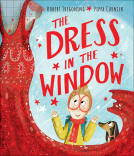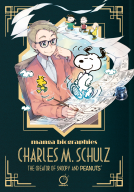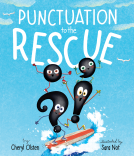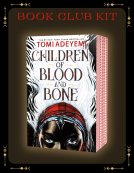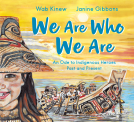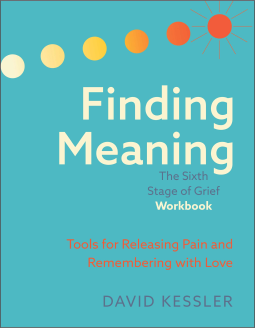
Finding Meaning: The Sixth Stage of Grief Workbook
Tools for Releasing Pain and Remembering with Love
by David Kessler
This title was previously available on NetGalley and is now archived.
Send NetGalley books directly to your Kindle or Kindle app
1
To read on a Kindle or Kindle app, please add kindle@netgalley.com as an approved email address to receive files in your Amazon account. Click here for step-by-step instructions.
2
Also find your Kindle email address within your Amazon account, and enter it here.
Pub Date Oct 01 2024 | Archive Date Oct 30 2024
PESI Publishing | Bridge City Books
Talking about this book? Use #FindingMeaningTheSixthStageofGriefWorkbook #NetGalley. More hashtag tips!
Description
Love is the antidote for the pain of grief.
When you experience grief, your world can feel overwhelming. It can be difficult to imagine a future. You feel lost and hopeless.
International grief expert and noted author David Kessler has spent decades working with thousands of people experiencing the depths of their grief. He knows the pain deeply, personally. And he also knows the path to begin to find hope, and healing, again.
In this companion workbook to David’s bestselling book Finding Meaning: The Sixth Stage of Grief, you will come to understand your unique and personal experience with grief and begin to work through the loss, releasing the hurt and learning to grieve with more love than pain . . . because love never dies.
And it is in that love where you can find meaning.
Written with warmth, sensitivity, and unique insight, you’ll feel like you are sitting with David, having a conversation along your path to healing.
The Finding Meaning workbook is filled with:
- Self-reflective exercises
- Journaling opportunities
- Warmhearted guidance for releasing pain
- Navigation techniques for complicated grief
- Tools for guilt, rumination, and overwhelming feelings
Advance Praise
“In this deeply empathic, accessible, intuitive, and affirming workbook, David Kessler gives us the opportunity to create our own personal roadmap for finding meaning while navigating grief, reminding us that we will all experience loss and that there is no ‘wrong way’ to grieve. The exercises and prompts are universally useful for a person navigating any kind of loss and gently guide us back to the possibilities of healing and meaning-making in the wake of loss and grief.”
―Ramani Durvasula, PhD, clinical psychologist, professor emerita of psychology, and author of the New York Times bestselling book It’s Not You: Identifying and Healing from Narcissistic People
“David Kessler shows us that dealing with emotions attached to grief and loss will help us find comfort, hope, and healing. The Finding Meaning workbook provides gentle, expert guidance through the twists and turns of the grieving process, leading to the last place we expect to arrive: a place where strength, clarity, and purpose can grow.”
―Frank Anderson, MD, author of To Be Loved and Transcending Trauma
“David Kessler offers us a kind, empowering, and life-changing guide to help any of us who are grieving the loss of a loved one. This workbook provides practical steps to move through the stages of grief in our own way, finding strength, clarity, and meaning by being open to the full spectrum of emotions that come with loss. With inspiring stories and practical exercises, these pages are a soothing companion in our moving forward with an expanded embracing of life’s purpose and loving relationships.”
―Daniel J. Siegel, MD, New York Times bestselling author of Aware, IntraConnected, and Personality and Wholeness in Therapy and executive director of the Mindsight Institute
“David Kessler’s Finding Meaning workbook is the next best thing to a hand placed gently on your shoulder or a kind voice whispering the wisdom and comfort you need to hear. These pages offer reliable guidance from someone who has walked the path of grief and loss, and found healing and purpose in the journey.”
―Claire Bidwell Smith, author of Anxiety: The Missing Stage of Grief
“We can’t go back to the place we were before grief and loss, but we can make meaning in how we live life going forward. In the Finding Meaning workbook, David Kessler offers compassionate clarity for how we can not only process the emotions surrounding a loss, but also use the lessons of grief to rebuild our resources for relating to others and ourselves.”
―Imogen Carn & Sally Douglas, founders of the Good Mourning podcast
Marketing Plan
National media and publicity campaign led by Cromwell PR
National media and publicity campaign led by Cromwell PR
Available Editions
| EDITION | Paperback |
| ISBN | 9781962305297 |
| PRICE | $19.99 (USD) |
| PAGES | 122 |
Available on NetGalley
Average rating from 13 members
Featured Reviews
 Reviewer 1114252
Reviewer 1114252
It’s very difficult to write a book about grief since it is such a personal and subjective topic. The author did a good job providing education in a way that doesn’t feel shameful for those struggling to move through the grieving process.
 Megan L, Educator
Megan L, Educator
Let me start by saying I am a big fan of David Kessler's work both as a therapist and a human. His books work on both levels as well; a tool you can use with your therapist or on your own. Finding Meaning is his sixth stage of grief, basically how you can let go of the worst parts of grief and live after loss. What did this death teach you? Are you stronger than you thought? More compassionate? What about this death is holding you back? Your guilt? A magical thought or unwaranted sense of responsibility? This book.will take you slowly and gently through exercises to help you heal after loss. The workbook is thorough. It would help with healing from death or even the break up of a long relationship. A must read!
 Lisa D, Reviewer
Lisa D, Reviewer
I plan on spending more time with this workbook later, but I already feel like I got a lot out of it. Kessler starts by talking about expectations, and how everyone has different expectations on how individuals should experience grief. Unfortunately, people will let other people know that they are experiencing grief "wrong," making a bad situation so much worse.
There are a lot of exercises in this, leading up to the acceptance stage of grief and then on to the future. The way the exercises are designed, I think I could do them multiple times to dig deeper into some of my feelings. Grief is an ongoing process, and it is taking me a long time.
Thanks to NetGalley for letting me read this.
 Reviewer 1439851
Reviewer 1439851
I really liked this book's message to readers. I think this book can benefit anyone, it's therapy for a lot of people. Finding Meaning talks about how grief and loss can shape us but it also speaks about finding meaning in the small steps you take to enjoy the present. It delves into our past as humans and into what our future can look like. I found some of the exercises really helpful in my experience with therapy. I've personally done a lot of therapy and it has connected me with myself and others around me. Emotions are okay, you have to feel them, to process them in order to become the person you are today. I like that this author has included a lot of examples when writing this book, every story is different. Everyone has different experiences especially with grief and loss. It's important to acknowledge that and to acknowledge your own grief and loss in the process. The specific examples that I really liked from the book was Rick Hanson's meaning on finding meaning. That it's everywhere you go, you can look at someone on the street and not know what they're dealing with. You can look at a family member or friend and still not know what they are going through. I connected a lot in this book with my own grief too.
Overall I'd say this book is a 4.5 or 5 stars. I liked it.
I was reading “Finding Meaning: The Sixth Stage of Grief” by David Kessler when I discovered this workbook to accompany it. The workbook is a practical way to not just read but actively learn from Kessler’s insights about finding meaning in the midst of pain. Both books are aimed at people relatively near in time to the death of their loved one (but not immediately after) or who are still in the midst of intense grief (including guilt, anger, and/or hopelessness) regardless of how long it has been since the death. This is because it is precisely by finding meaning that we come to need Kessler’s books a little less. If you have begun to find meaning, this book still offers useful tools, because grief doesn’t end. It will also help you be more compassionate to others who are grieving and better prepared when encountering the pain of grief in the future, since each death impacts us differently.
Kessler does an incredible job of normalizing all of the thoughts and feelings people might think are abnormal or unique. For example, he addresses feeling guilty about living when your loved one has died, obsessing about what you could have done to prevent your loved one’s death, and how hard it can be to interact with others after the death of a loved one. With examples of how he has helped others break through profound grief and exercises to help the reader begin that same process, Kessler shows it is possible to keep living while grieving. If you feel like you will never be happy or want to live again after the death of your loved one, please read this book and actually do the exercises. To read it is encouraging; to engage with it just might bring you back to life. The pain doesn’t go away, but Kessler makes a strong case it is possible for love to eventually take up more space than the pain.
One thing to know is it is important to read “Finding Meaning: The Sixth Stage of Grief,” before or along with the workbook, because Kessler assumes the reader is familiar with the book on which the workbook is based. The workbook could stand alone on its own to an extent but is much more valuable as a complement to the book. If you read the workbook in a digital format or borrowed copy, be sure to have a notebook available to write out answers to the questions, because merely thinking about them won’t be as beneficial.
Thank you to PESI Publishing (Bridge City Books) and NetGalley for the privilege of reading a DRC of this book. All opinions are my own.
 Reviewer 1394760
Reviewer 1394760
I am experiencing grief at the moment but like everyone else who is alive, I have experienced it and will experience it again many times.
This book is for those times - well-presented, informative, insightful and has great exercises and tips to help with your grief.
 Reviewer 410985
Reviewer 410985
I really enjoyed the care and compassion shown in the creation of this workbook. It was interactive and thought provoking. It had many activities to help with processing hard emotions relating to grief. I would recommend this to anyone who is having trouble move past their feelings of grief.
David Kessler has worked in the field of grief and loss for many years, both in his own life and helping others in theirs, giving him the experience to offer this workbook on how to find meaning in loss.
Why "finding meaning"? David explains well in the book the part that finding meaning plays in the process of healing from grief, he calls it the sixth step of grief. That it is not necessarily about understanding, but making sense of what has happened, restoring hope and power to you. And this book is a valuable companion on that path.
This book is often phrased in the loss of a loved one, but seems applicable to the broad spectrum of loss, not just death. I found many of the exercises useful for myself and I can see how they could be used by others and in other situations for great benefit. They help you to gently wade into the pool of grief, not throwing you in the deep end, so you can work through and grow through it. It leads up to more challenging reflections, leading to growth around what has happened.
And be assured the book is not just worksheets, there is plenty of insightful guidance and explanation around grief and why these exercises are suggested and may be useful. The language is kind and compassionate throughout. This book is a supportive tool for anyone navigating their own journey through loss.
In 2012 I lost four people that were very close to me, one of whom was my father. The overall loss was staggering, and the loss of my father ended up breaking me. It has been 12 years of hard work and putting myself back together - and learning a lot about grief. To me this is wild, because as an undergrad and grad student, I studied death and dying.
I collected so many tools for grief and grieving through those 12 years - and I am still going, because grief is a process, not something you will "get over." This workbook is honestly one of the best resources I've found, because it digs deep and helps you do the ACTUAL work - it doesn't include any of the weird cotton candy (a lot of fluff, tastes sweet, but ultimately melts away to no substance) platitudes that well-meaning-but-not-understanding people dole out without a second thought. Kessler walks you through exercises that can gradually clarify your grief story by attempting to alleviate pain, shame, and guilt through really examining your experience and finding ways to move toward making meaning and acceptance through resilience you weren't aware of.
This workbook pairs with Kessler's book of the same name, but it stands on its own perfectly. I was 'sent' to a grief group during the worst time of my grieving, and unbeknownst to me, it was religion-based...I mention this because this workbook has ZERO inclination toward any belief system at all; it focuses on you and your grief experience. Any 'higher power' you require will be something you need to provide.
Overall, this is a wonderful resource for the newly grieving and the person who has been grieving for a while - as I mentioned, my losses have been years ago, and I still found valuable lessons within this workbook. Of the absolute plethora of books available, this is definitely one of the top that I would recommend.
Finding Meaning: The Sixth Stage of Grief Workbook, is an exceptional workbook that provides applicable tools in walking through grief. In David Kessler's book of the same title, this duo can be used in showing the reader how it is possible to keep living while walking through a tragedy and dealing with grief. The workbook could stand alone as a tool to process your grief and feelings, as there are many exercises and encouragement throughout the book geared towards the healing phase of grief. The encouragement from Kessler can help guide the reader back to sense of "finding meaning" in their grief and can direct you towards living life again. The pain of grief may endure but it is necessary to recognize that LOVE can be the conqueror in the space of pain. I personally enjoyed working through the many exercises found within each chapter. A favorite quote from David Kessler, "The most beautiful flower grows out of the mud. Our worst moments can be the seeds of our meaning. They have an amazing power to transform us."
Thank you to NetGalley and PESI Publishing for the advanced review copy of this amazing book! All opinions are my own.
To begin my review, I'd like to share a few facts:
I'm an avid admirer of David Kessler.
I serve as an End-of-Life Doula.
I volunteer with hospice.
These roles demand a comprehensive set of skills, or tools, that are essential for assisting families at various stages of grief. These tools help navigate anticipatory grief and the lifelong journey of loss (echoing David's words: "How long is the person who died going to be dead? If they're going to be dead for a long time, then you're going to grieve for a long time."). This workbook is filled with exercises designed to help us grieve with more love than pain, as suffering is not mandatory.
I frequently revisit the chapter on reframing cues. I consider this exercise to be invaluable, as it has the potential to alter our perception of the triggers that lead to suffering. The exercises on 'What Ifs' and 'Even Ifs' are equally transformative. The inclusion of this workbook in my doula toolkit, as well as sharing it with family and friends who would benefit from David's wisdom in navigating their grief, is of immense value.
Having received a complimentary eARC from the publisher and NetGalley, I wholeheartedly endorse this workbook to anyone feeling trapped in grief and seeking ways to mourn with love rather than pain.
 Lisa S, Reviewer
Lisa S, Reviewer
This is a book to be read time and again when you are in the depths of grief. It runs a close second to C.S. Lewis’s marvellous book on grief, although it isn’t religious. Full of inspirational insights, gentle guidance and exercises to help along the path, it needs to be read closely and studied.
I especially liked the idea of reframing ‘triggers,’ for example, places that remind you of bad memories. Even a psychologist didn’t suggest this, and he includes very helpful exercises to help you reframe regretful incidents or memories.
I am going to read this again slowly, and try the exercises again.
I received this free ebook from NetGalley in return for an honest review.
Readers who liked this book also liked:
L.M Montgomery
Children's Fiction, Comics, Graphic Novels, Manga, Teens & YA
Yuzuru Kuki
Biographies & Memoirs, Children's Nonfiction, Comics, Graphic Novels, Manga
JUNO
Arts & Photography, Comics, Graphic Novels, Manga, Travel
Silvia Moreno-Garcia
Historical Fiction, Literary Fiction, Sci Fi & Fantasy
We Are Bookish
Sci Fi & Fantasy, Teens & YA





